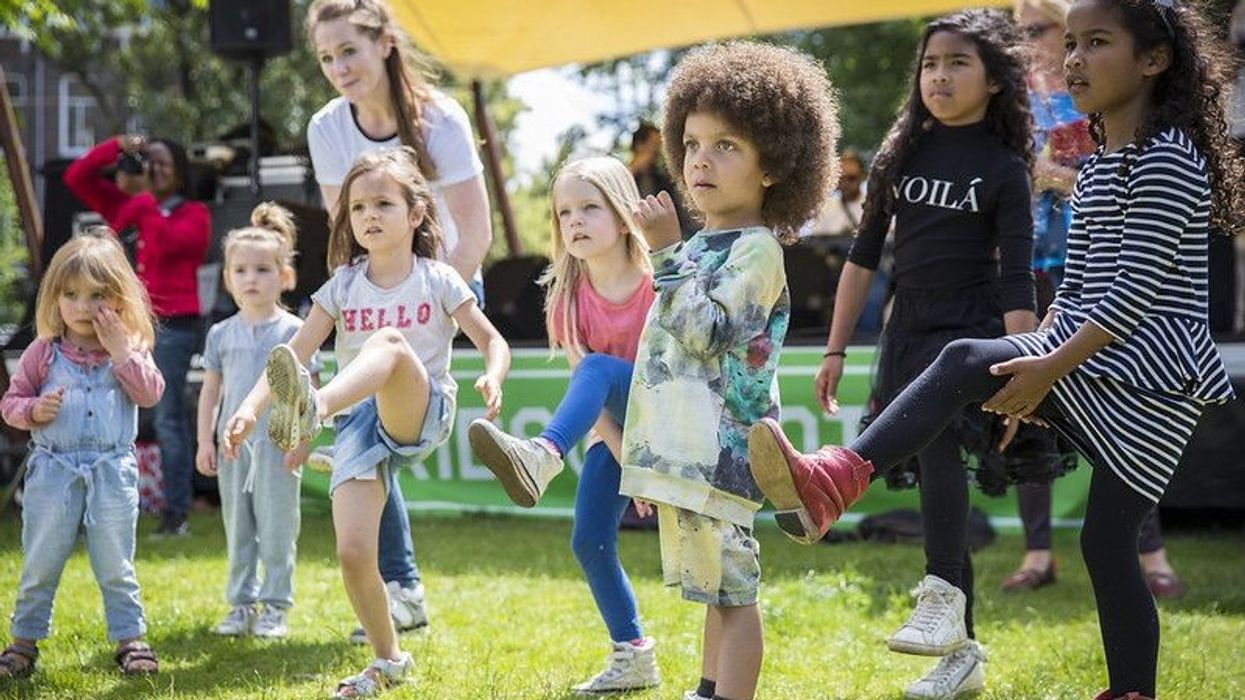Babies thrive on stability and predictability.
Having a predictable structure to your baby's day can help make your baby more settled and confident. Structures can make order out of chaos and provide your baby with a sense of security and safety.
So how does a sleep schedule work and how do you introduce one? Is sticking to a rigid routine better or worse than going with the flow and embracing spontaneity? Find out here!
For more great parenting tips, check out our guides to 14-month-old milestones and the 8 month sleep regression.
Why Are Schedules Important?
Schedules can be like an old, comforting blanket to a baby. Having a familiar and predictable routine is calming and reassuring for the average 8-month-old baby.
A schedule takes some of the chaos out of the average day looking after a young baby. The most important tasks of the day, feeding the baby and letting them get their rest in, are all scheduled, leaving time for play and spontaneity in between. Here are some tips to help you establish a schedule:
Having a schedule tailored to your baby's individual body clock involves making the schedule fit to suit your baby, not the other way round. At eight months, your baby is not going to be in a strict routine, but you might be able to establish a successful rhythm, even if it's very changeable.
Pay attention to your baby's cues and let them decide how your schedule is worked out.
Your 8-month-old baby will tend to get tired at around the same times each day, for example, so schedule their naps for those times. Schedule their mealtimes around the points in the day when they tend to start getting hungry.
You can't force a baby who isn't tired to go to sleep and you can't force a baby who isn't hungry to eat. Tailoring your routine to suit your little one will make introducing a schedule much easier.
Having a predictable nighttime routine and nap schedule can also be reassuring to both parents and babies when going through sleep regressions. If your little one's nighttime sleep is suffering due to sleep regression, stick with your usual bedtime routine and scheduled bedtime.
Weeks of interrupted baby sleep can be disorientating for all involved, and sticking to tried and tested routines can be comforting while going through periods of chaos.
Sleeping & Naps
What is a typical 8-month-old schedule for sleeping and how do you go about introducing an 8-month-old sleep schedule to your little one's day?
Most 8-month-old babies sleep for around 14 hours per 24 hour period. At this age, your little one may sleep for around 12 hours at night and for about three or four hours during the day in naps. Some 8-month-olds are sleeping through the night by now, though many aren't.
Most babies have a pretty stable sleep schedule by 8 months, even if their parents haven't consciously sat down to formulate a formal routine. This is because babies are quite predictable in their sleeping and eating habits, tending to feel sleepy or get hungry at about the same times every day.
Many babies go through a sleep regression at eight months, triggered by reaching developmental milestones or teething trouble. Sleep regression can wreak havoc with a sleep schedule.
Your little one may find it harder to get to sleep, and they may wake up several times during the night. Naps might also be out of whack, with your baby wanting to sleep for longer, or having restless naps and waking earlier.
At eight months, a baby could go through a sleep regression for many reasons. Developmental milestones may be the culprit, as your baby begins crawling and pulling themselves up to a standing position. These physical milestones, combined with separation anxiety, teething, and an increased interest in communication, can leave a baby over-excited and overstimulated by bedtime.
Sticking to a familiar and comforting bedtime routine is key to getting through sleep regressions at this age. A popular routine is bath, book, bed, which many parents find works wonders for chilling their babies out in time for a good night's sleep.
The typical 8-month-old baby will take two naps a day. They will have one nap after breakfast for up to two hours, and an afternoon nap after lunch also lasting up to two hours.
If your baby isn't sleeping well through the night, you might want to make nap times longer, to make up for lost baby sleep at night.

Feeding
What is a typical 8-month-old eating schedule and what is the recommended 8-month-old schedule for milk feeds?
An 8-month-old should be deriving most of their nutrients from breast milk or formula. You should supplement these milk feeds with solid food, three times a day, and offer your baby water to drink.
At 8 months old you should continue to breastfeed your baby on demand or offer them four milk feeds of formula milk a day. Babies need up to 600 ml of formula a day, but no more than this.
A typical 8-month-old feeding schedule would involve a milk feed on waking, one after their morning nap, one after their afternoon nap, and one before bed. Breastfeeding babies, however, often feed for comfort, so may nurse much more often than this.
At 8 months old babies need the same variety of nutrients as we do but in smaller servings. A serving of fruit or vegetables could be as small as a tablespoon at this age.
Make sure all their food is soft enough for them to chew and that pieces are cut small enough so as not to pose a choking hazard.
You might need to puree some foods before giving them to your baby, but try them on some finger foods too, like potato wedges or fruit batons. This will also develop their hand-eye coordination and allow them to feel in control of their eating.

Playing
Your baby is never too young to play a game or two! At this age, you can have lots of fun with your baby without having to break the bank on a load of expensive toys. In fact, the most beneficial games at this stage are ones you can do without any props at all.
Simple games such as peek-a-boo are endlessly entertaining for young babies, and are a fun way to explore the idea of object permanence, a cognitive milestone that your baby may have recently passed.
Other games you can play like this include letting your baby fill and empty containers of bricks or other objects or simply letting them empty your handbag of its contents (ensuring you have removed anything sharp or potentially dangerous, like a set of keys, first) and put everything back again.
Babies can be easily pleased!
8-month-olds will love hearing you sing nursery rhymes. Try teaching your baby nursery rhymes with actions. They will have lots of fun simply watching you perform the actions yourself, and will be very proud when they manage to copy an action.
Emotional Development
As a result of their new appreciation of object permanence, your baby may begin to suffer from separation anxiety. Separation anxiety is typical in 8-month-olds, and once your baby reaches this phase they will be much more clingy than usual.
An 8-month-old with separation anxiety won't want to lose sight of his primary caregiver and will cry when separated, even if they happily went from lap to lap before.
You can help your child get through this phase with no lasting trauma if you make a habit of letting your child know when you're about to leave the room or leave them with someone else.
Don't just slip out, as this could create a sense of distrust between you over time. When you return from your bath or from work, make a big deal out of being together again.
This way, your baby can start to look forward to your coming back rather than just dreading the idea of you going away.
Your 8-month-old might be able to say "mama" or "dada" by now, though don't worry if they aren't making any sounds like these yet, every baby develops at their own pace. Your baby understands the word "no" now, and might even tell you off by wagging their finger at you!
Your baby might develop an attachment to a favorite toy or blanket around now, and have to cart it around with them wherever they go. This object will comfort them through their separation anxiety.
Sample Schedules
So what is the perfect feeding schedule for 8-month-old babies? Choose a sample schedule from our examples below or create your own!
By the way, if you're wondering how to fix an 8-month-old schedule that is no longer working, just try and let your baby lead the way.
Let your schedule get looser for a bit and see if you can adapt it to match your baby's changing needs. This relaxed approach is likely to be useful for anyone trying to transition an 8-month-old onto a schedule or encourage them to adopt a nap schedule too, follow your baby's cues and build the schedule around their needs.
Here are three sample schedules for 8-month-old babies. As you read, please remember that these are just examples. All babies are different and what is perfect for one family, may not work for another. The key is to adapt a basic sample schedule to fit your baby's needs.
Sample 8-Month-Old Schedule For Stay-At-Home Mom
7 a.m. Wake up and give baby breast milk or 6 oz formula.
7.45 - 8.15 a.m. Breakfast, yogurt and mashed banana and blueberries.
9 - 10 a.m. Morning nap.
10 a.m. Milk feed. Breast milk or formula.
10.20 - 11.45 a.m. Stroll outdoors to local park.
12 - 12.30 p.m. Lunchtime. Baby food and some soft-cooked carrots. Water to drink in a sippy cup.
1 - 2.30 p.m. Afternoon nap.
2.30 p.m. Breast milk or formula feed.
3 - 5.30 p.m. Play.
6 - 6.45 p.m. Dinner. Some pureed dinner from your plate and bits of soft vegetable to eat as finger food. Water.
6.45 - 7.30 p.m. Bedtime routine. Breast milk or formula, sleep.
8-Month-Old Schedule: Not Sleeping Through The Night
6.45 a.m. Wake up. 6oz formula or breastfeed.
7.30 - 8 a.m. Breakfast. Baby cereal and water. Chopped strawberries to self-feed with fingers.
8.45 - 10.15 a.m. orning nap. The nap might be longer if your baby hasn't slept well during the nighttime.
10.15 a.m. Milk feed. Formula or breast milk.
10.30 - 11.30 a.m. Walk outside.
12 - 12.30 p.m. Lunch. Jar of baby food and some yogurt. Water to drink.
1 - 2 p.m. Nap.
2 p.m. Milk feed.
2.30 - 5 p.m. Take baby out, perhaps for a walk or to visit family.
6 - 6.30 p.m. Dinner. Small cut-up pieces of omelet. Water to drink.
7 - 7.45 p.m. Bedtime routine. Last bottle or breastfeed before sleep.
A Sensible 8-Month-Old Schedule: Feeding, Sleeping And Play
7 a.m. Wake up. Milk feed of breast milk or formula.
7.30 - 8 a.m. Breakfast. Hard boiled egg and soldiers. Water to drink.
8.20 - 9.30 a.m. Morning nap.
10 - 12 a.m. Playdate away from home.
12.30 - 1 p.m. Lunch. Baby food jar containing a variety of vegetables. Pieces of fruit, water.
1.30 - 2.30 p.m. Nap.
2.30 p.m. Afternoon bottle of milk or breastfeed.
3 - 5.45 p.m. Playtime indoors or out.
6 - 6.45 p.m. Dinner. Soup and piece of bread. Water to drink.
7 - 7.30 p.m. Bedtime routine, last bottle or breastfeed and sleep.
If you found this article helpful, then why not take a look at our sample 10-month-old schedule or our investigation about why your 9-month-old baby might not be crawling?










